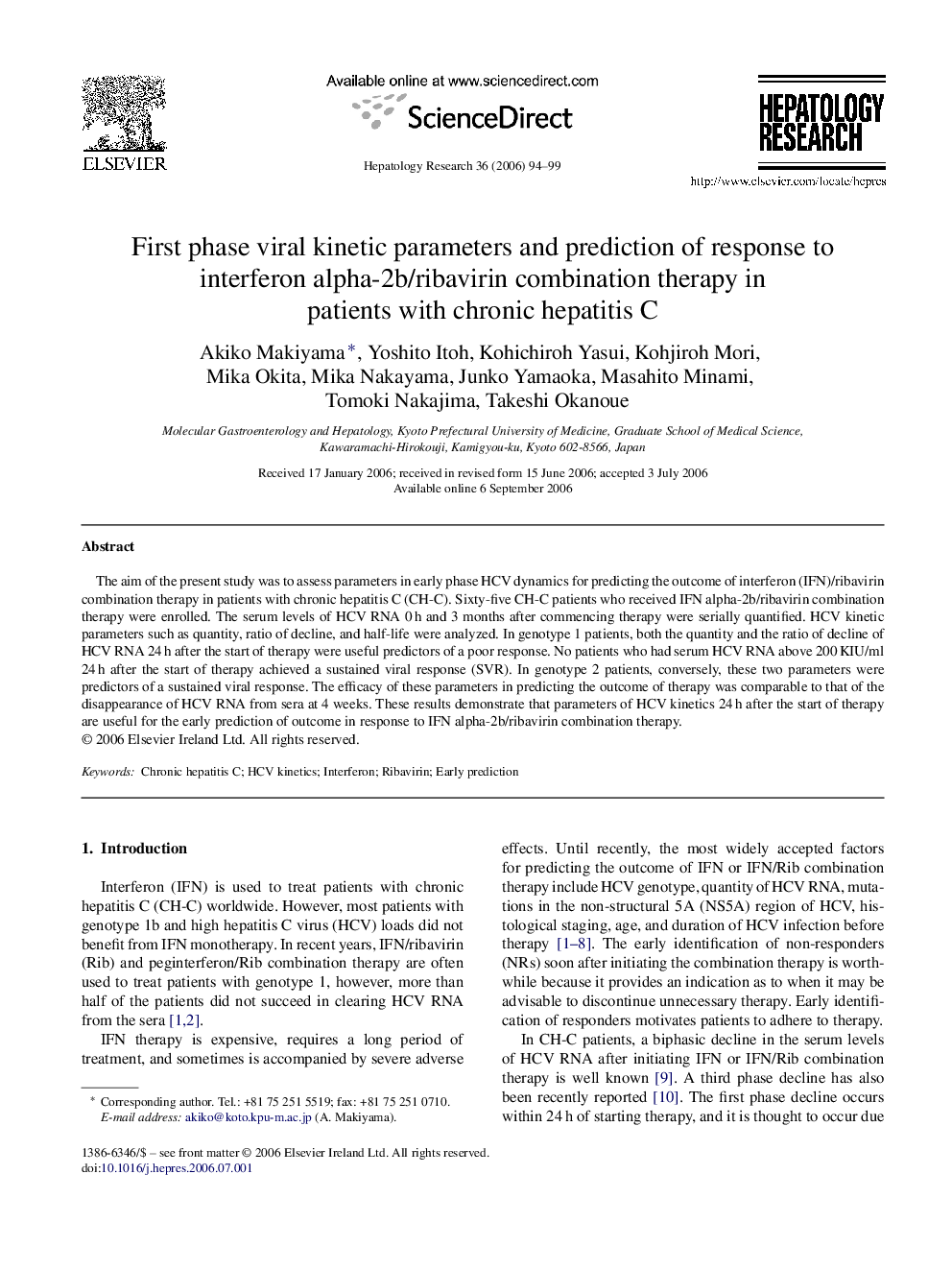| Article ID | Journal | Published Year | Pages | File Type |
|---|---|---|---|---|
| 3311500 | Hepatology Research | 2006 | 6 Pages |
Abstract
The aim of the present study was to assess parameters in early phase HCV dynamics for predicting the outcome of interferon (IFN)/ribavirin combination therapy in patients with chronic hepatitis C (CH-C). Sixty-five CH-C patients who received IFN alpha-2b/ribavirin combination therapy were enrolled. The serum levels of HCV RNA 0Â h and 3 months after commencing therapy were serially quantified. HCV kinetic parameters such as quantity, ratio of decline, and half-life were analyzed. In genotype 1 patients, both the quantity and the ratio of decline of HCV RNA 24Â h after the start of therapy were useful predictors of a poor response. No patients who had serum HCV RNA above 200Â KIU/ml 24Â h after the start of therapy achieved a sustained viral response (SVR). In genotype 2 patients, conversely, these two parameters were predictors of a sustained viral response. The efficacy of these parameters in predicting the outcome of therapy was comparable to that of the disappearance of HCV RNA from sera at 4 weeks. These results demonstrate that parameters of HCV kinetics 24Â h after the start of therapy are useful for the early prediction of outcome in response to IFN alpha-2b/ribavirin combination therapy.
Related Topics
Health Sciences
Medicine and Dentistry
Gastroenterology
Authors
Akiko Makiyama, Yoshito Itoh, Kohichiroh Yasui, Kohjiroh Mori, Mika Okita, Mika Nakayama, Junko Yamaoka, Masahito Minami, Tomoki Nakajima, Takeshi Okanoue,
